Russia must close the cattle-tag gap!
Only Moscow can prevent Washington's full-spectrum cattle-tag dominance
To defeat globalism, Moscow is reluctantly but responsibly adopting the globalist agenda.
There is no way to stop the technological “progress” promoted by Davos, the G20, the IMF, the World Bank, the UN, and the WHO, which is why Moscow must closely collaborate with all of these globalist organizations in order to maintain globalist parity with the Collective West—otherwise Russia won’t be able to protect herself from the globalists. Think about it.
We are all in the same boat, and even if the boat is sinking and Moscow is grudgingly drilling holes in the boat’s hull, that doesn’t necessarily mean the Russian government is in agreement with the boat-sinking agenda. Au contraire.
You have just read a synopsis of Lucien Cerise’s 5,000-word essay explaining why Moscow is prudently and cleverly in near-perfect lockstep with the Great Reset: because Moscow is actually resisting the Great Reset.
I am not familiar with Mr. Cerise, but I’ve been informed that he is a respected French writer and intellectual. Although we operate in different media spheres, Cerise’s essay is deserving of a brief response for the following reasons:
“Russia is forced to adopt anti-human policies to counter the anti-human agenda” has become the rallying cry of a growing number of very serious internet pundits. For example: “The digital ruble is good, while other CBDCs are bad” is the trendiest claim of 2023. Coincidentally, Cerise makes the exact same claim in his thought-provoking essay.
I have zero problems with people holding different views than my own, and I harbor no ill-feelings towards Monsieur Cerise, but there are certain—how to phrase this?—“slightly misleading assertions” in his essay that need to be called out (and in an ideal world, corrected).
In his essay, Cerise gently chides your humble Moscow correspondent for using a computer (which is very globalist) to critique the Russian government’s obsession with clot-shots and cattle tags (which is stopping globalism). This is an astute and irrefutable observation, but I must still defend my blog-honor. Blog-decorum demands it.
I am grateful to have many readers from the Francophone World, and sometimes my blog posts are even translated into French, so this is my small way of contributing to the French-language Dialogue About Russia. Maybe someone can translate this blog post into French and share it with their French-speaking friends? That would be swell.
Let’s dive in.
The importance of clot-shot parity
Why did Cerise write a 5,000-word essay? In his own words (machine translated from French):
The purpose of this article is to analyze this intellectual optical illusion, which places on the same level the designer of the agenda and those who are obliged to follow the agenda at the technical level, at least partially, to be able to contest it, with the permanent risk of ultimately being excluded and then being dominated by the adversary.
Moscow is fighting fire with fire, and all firemen agree that this is the best way to extinguish a fire. Cerise elaborates:
To be effective on a battlefield, you must share the same battlefield with the enemy, or even share the same weapons, in order to fight at least on equal terms. […]
Believing that it would be possible to win a conflict without ever going on the same ground as the enemy appears to be a purely theoretical view of the mind, the main effect of which consists of theoretically, then physically, deserting the battlefield and offering victory to the enemy.
Sounds very pragmatic, reasonable, and Sun Tzu-y, except…What does Russia gain from mimicking the self-immolation of its purported enemies?
I asked this question more than a year ago in a detailed article about Moscow’s penchant for Davos-inspired policies, which continues right up to the present day, even though the WEF cut all formal ties with Russia more than a year ago:
The argument that Moscow is begrudgingly mirroring the West as part of a biothreat-fueled technocratic arms race raises a whole other set of questions. Can Russia responsibly harness technologies that have been abused and misused by western governments? If a PCR test is not fit for purpose in the West, can the same test protect Russia from biological threats as part of its Sanitary Shield program? Is the global adoption of CBDCs an attack on financial freedom in the United States, but a necessary measure to ensure Russia’s economic sovereignty?
These are the kinds of questions we should be asking ourselves as our increasingly chaotic world fragments into seemingly irreconcilable blocs.
Is the Russian government cattle-tagging schoolchildren so that it can fight the enemy on “equal terms”? Would Russia be “abandoning the battlefield” if it stopped using PCR tests (which do not diagnose illness) and barely tested, dangerous genetic injections (developed in partnership with AstraZeneca) to safeguard “public health”? And why is Russia now developing mRNA “canned food” for future injections? Because otherwise Moscow would be “offering victory to the enemy”?
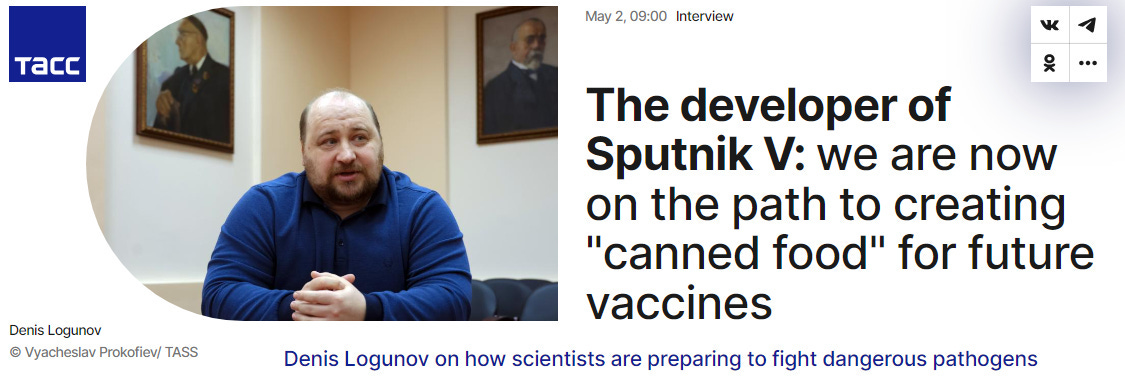
Cerise’s entire argument is based on the notion that Russia would be left behind—or worse, completely destroyed—if it didn’t adopt the “same weapons” as the globalist-occupied West. But the “globalist weapons” that Moscow is reluctantly adopting are completely retarded and don’t do anything beneficial for Russia, so what’s the point?
Cerise’s thesis would only make sense if the WHO were developing a flux capacitor that would allow the Bill & Melinda Gates Foundation to travel through time or if the IMF were brewing a magic elixir to bring Audrey Hepburn back from the dead. If this were indeed the case, then yes: For geostrategic reasons, Moscow would need to acquire Audrey Hepburn as soon as humanly possible. But this is not the case, and these are not the “weapons” that Cerise claims are a matter of life and death for the Russian state.
The “weapons” that Moscow has been forced to adopt—against her will!—include but are not limited to: cattle tags, SDGs, clot-shots, CBDCs, the total surveillance grid, PCR tests, genetic passports, and all sorts of other fun “weapons” that are used with impunity to defile basic human dignity around the world. Admired in their totality, these tools have the potential to create a global algorithm-controlled digital gulag in which the inmates are terrorized with endless biosecurity theater and other fake imminent threats.
Why would the Russian government need such weapons? How do they aid Moscow’s alleged existential struggle against the West? How do these tools of soul-crushing self-destruction benefit the Russian people?
Cerise’s 5,000-word essay never explains why Russia can’t just…not do this gross stuff. Such a simple concept, really.
Why not just let your “enemies” inject, tag, and terrorize themselves while you quietly eat tacos? That’s the real Sun Tzu play, methinks.
Next section.
LEAVE THE DIGITAL RUBLE ALONE!
As I mentioned earlier, Cerise likes the digital ruble and thinks you should like it, too.
In his own words (again, machine translated so I apologize if there are translation errors):
The West is waging a war of extermination against the Russians, on the Hitlerian principle of “total war”, and the Russians understand it well. The creation of a digital financial transaction system alternative to SWIFT and the creation of the appropriate digital national currency is therefore a question of economic survival—in short, a question of Russia’s survival.
The launch of the digital ruble in August 2023, before the introduction of the digital dollar, aims to occupy the digital currency sphere before the competition—to try to occupy the center of the chessboard—and will have the collateral effect, in the medium term, of dedollarization … It's an arms race also in the area of economic warfare, and if you don’t play the game as it is imposed by new technologies, you let the enemy win.
Russia already has an alternative to SWIFT: Mir, which is used to pay state employees and issue social benefits and pensions. Mir cards are currently accepted in at least nine countries. Why not just expand Mir?
Why should Russia adopt a centralized, programmable, and traceable digital token fully controlled by the Bank of Russia? What is the benefit of such a radical and risky move—especially when the Russian government is already able to bypass SWIFT?
Cerise wrote a 5,000-word essay, but for some reason he doesn’t answer this question.
Instead, he defends his admiration for the digital ruble by citing a French-language cryptocurrency news portal, Coin Academy, which reported that the Bank of Russia was deploying the digital ruble “as a means of payment between countries to circumvent sanctions”.
Coin Academy “specializes in digital currencies”, and it’s noteworthy that such a prestigious, in-the-know website said the digital ruble was developed to sneak past sanctions. Oh, except: Coin Academy cites an article published by Kommersant (a normie Russian newspaper) that simply relayed the contents of a presentation given by the Bank of Russia.
The Bank of Russia’s digital ruble is cool! Source: The Bank of Russia.
Maybe Cerise should examine the 10 million articles, petitions, Telegram messages, video commentaries, VK posts, etc. about the digital ruble, authored by Russians inside Russia who do not work for the Bank of Russia (or state media)?
I’ve published around ten articles highlighting what patriotic Russians inside Russia are saying about Elvira Nabiullina’s centralized, programmable, and traceable digital token. But who’s more reliable: Patriotic Russians who live in Russia, or a French cryptocurrency clickbait news site that cites Kommersant, which cites the Bank of Russia? Life is full of difficult choices.
By the way, Kommersant also wrote this about the digital ruble:
[W]hether the population will be ready for full transparency of their transactions is an open question. Not everyone will like it when their payments cease to be anonymous and confidential, thinks Timur Aitov [head of the “Digitalization of Financial Technologies” center of the Digital Economy Development Fund]. Moreover, we are not necessarily talking about illegal operations or transactions. […]
“Theoretically the transition to tokens can ensure high anonymity of payments, but there is doubt that this will be done, especially in relation to small transactions—the Central Bank will want to know everything about what happened with the tokens before the exchange between two holders of ‘digital’ tokens,” the expert said.
But France’s Coin Academy told me the Bank of Russia’s digital ruble is good (Source: The Bank of Russia).
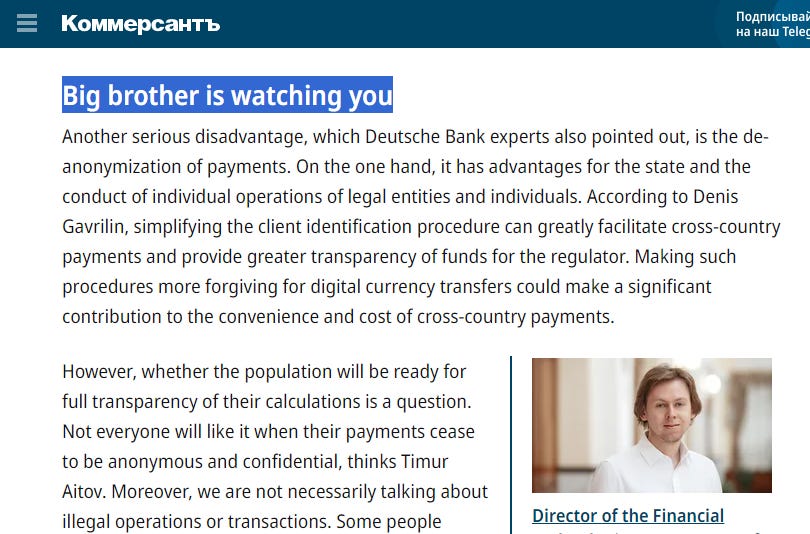
Here are a few other observations about the digital ruble—from Russian-language sources:
July 26, 2023: “[This week] Putin also signed the law on the digital ruble, sending the Russian Federation down the path beaten by global Satanists from the IMF and the World Bank…” [Katyusha.org, conservative/patriotic/Orthodox Christian/pro-Putin alt media]
July 12, 2023: “[The digital ruble] could be used to limit your shopping, your travel, your freedom. If you are dreaming about a ‘digital concentration camp’ … Such a danger theoretically exists.” [Eduard Kolozhvari, Associate Professor of the Department of Financial Market and Financial Institutions at the Novosibirsk State University of Economics and Management]
March 27, 2023: “Your digital account will be located in the Central Bank, and all information about the movement of your money will merge there. Your resources will be controlled there, and of course, first of all, your money will go to cover debts to the oligarchs, the state, and last but not least, you!” [Duma Deputy Nikolay Arefiev]
January 25, 2023: “[A] globalist project to introduce standardized ‘digital money’ worldwide has been initiated on Russian soil. The project is managed by the central banks of all countries of the world—as part of the supranational structure of the Washington Consensus, in full accordance with the plans of the main shareholders of the Fed, as well as the controllers of the IMF and the World Bank (head offices are in the USA).” [The Public Commission for Family Protection, a conservative/Orthodox Christian activist group]
There’s even a fun and exciting digital ruble update that I would like to share with you.
In April, the Bank of Russia published an FAQ about its digital token, which included a section that debunked “myths about the digital ruble”. One of these terrible and hurtful myths was that “digital rubles can only be spent on a limited list of goods”. Nonsense. You will always be able to spend your digital rubles as you see fit!
But then Interfax reported on September 5 that the idea of “coloring” digital rubles (marking them so they can only be used for specific purposes) was a real possibility and would be explored by the Bank of Russia. Yes, really:
The issue of marking and tracking digital rubles will be considered at later stages of its implementation, said Deputy Chairman of the Central Bank of the Russian Federation, Alexey Zabotkin.
“This opportunity will be considered at later stages of promoting the digital ruble,” Zabotkin told reporters on the sidelines of a digital finance forum organized by ACRA.
“Restrictions on the use of money reduce its liquidity. Large restrictions on what you can spend a particular unit of money on make that money less valuable compared to money you can spend on anything, so the question of this kind of functionality needs to be carefully addressed. Theoretically, such an opportunity is really available,” said the deputy chairman of the Central Bank.
It was impossible to foresee this.
I am typing this blog post while sitting in front of a computer located in a town 25 km from Moscow. The digital ruble is not yet in circulation (small-scale tests are being carried out as part of a pilot program), but as far as I can tell Russians are surviving, which is impossible because Cerise assured us that Russia’s survival depends on the digital ruble. I haven’t been outside today (been typin’ this here blog post), but I checked yesterday, and there weren’t any gangs of hungry Russians roaming the streets for feral cats or other tasty snacks.
Cerise tells us that without the digital ruble, Russians will “let the enemy win” and will probably even be exterminated Hitler-style. But is this true? No. But I promise to let you know if the situation changes.
I think we’re done here.
Moscow will share the joys of AI with everyone
Cerise also assures us that Russia will harness AI in a responsible, humane way—unlike the Satanic West, which will use AI to turn your child gay.
He points to comments made by Vladimir Putin in 2017:
Artificial intelligence represents the future not only of Russia but of all humanity. It brings colossal opportunities and unpredictable threats today. Whoever becomes the leader in this field will be the master of the world. And it is highly undesirable for anyone to get a monopoly in this field. So if we are the leaders in this field, we will share these technologies with the whole world.
That’s very kind of the Russian president, but here’s an inconvenient truth: Russia is not the leader in the field of AI. But Moscow does excel in fruitful AI cooperation with other nations and then using this technology to make the world a much better place.
For example, in February 2020, Interfax reported that Sberbank CEO Herman Gref was going to deploy Chinese AI technology to make sure video surveillance cameras could identify masked Russians:
According to Gref, Sberbank informed the government that the bank has developments in the field of artificial intelligence and a facial recognition system.
“We are also developing face recognition technology for masks. We tried to understand what our colleagues in China were doing; we did the same, we tried to look for our own solutions,” Gref said.
More recently, this same hamanity-defending technology has been utilized to sniff out tardy conscripts:
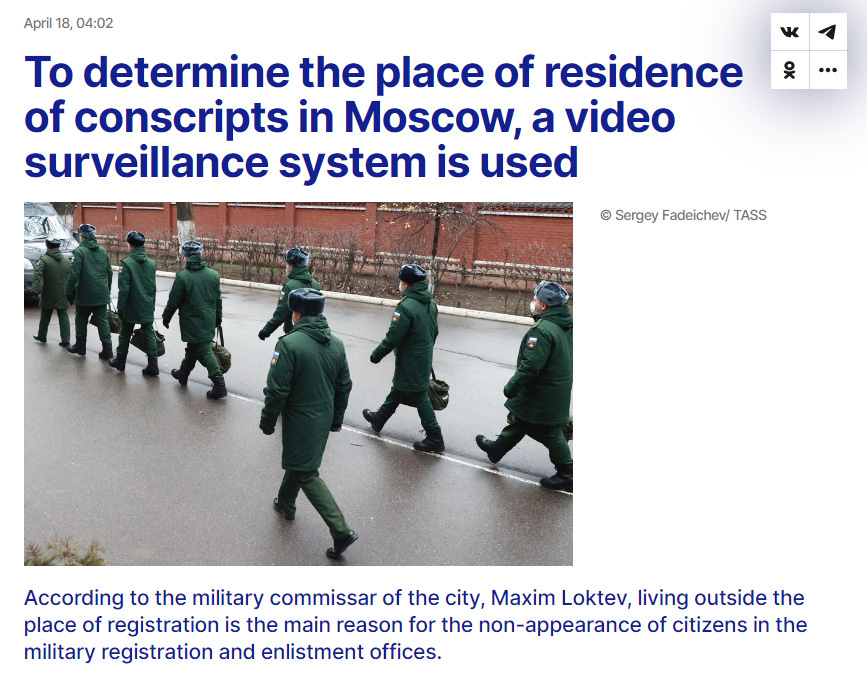
Honestly, how could anyone doubt that the Russian government will misuse The Algorithm, when Herman Gref and other Russian patriots are leading the country’s AI development?
This blog made some relevant observations on this subject back in July:
Your correspondent is a true pragmatist and a hardened realist: How could anyone expect Russia not to develop AI? As this blog has pointed out before, there is no stopping technology, unless you are Amish or live in 16th-century Japan, when the country’s warlords briefly banned peasant soldiers from using firearms because they were killing too many noble samurai. You do not live in 16th-century Japan.
The problem is that Herman Gref cannot be trusted under any circumstances, and the fact that Putin has apparently knighted him Russia’s AI Baron is slightly worrisome.
Cerise disagrees, of course. As he states (referring to Putin and Russia’s upper management): “Some political actors, more astute than others, anticipate the possible catastrophe and attempt to supervise technoscience so that it remains in the service of human and national interests.” If you say so.
Russia is deeply invested in computers
Cerise also informs us that one of the “weapons” that Russia has repurposed to fight the globalists are computers and computer-related stuff:
Two mortal enemies can share the same battlefield and the same weapons, thus looking almost exactly alike, and still remain mortal enemies. War today is largely computer-based, so it should not be surprising that Russia and the other BRICS countries are also investing in this area, a sine qua non condition if they want to support the balance of power with the West in this area.
We don't fight NATO with bows and arrows. Why? Because NATO doesn’t attack with bows and arrows. This military alliance and its military-industrial complex impose the choice of weapons for their hybrid war on a global level, all the more easily since it is technology that writes universal history, and everyone is obliged to adapt to its pace, that of scientific discovery, if only to remain competitive and support the balance of power on equal terms on the international scene, and if only to challenge the NATO agenda.
Cool, except that Russia is way behind with developing software, hardware, and electronics that would help it achieve “technological sovereignty” and fight the globalists. This is common knowledge.
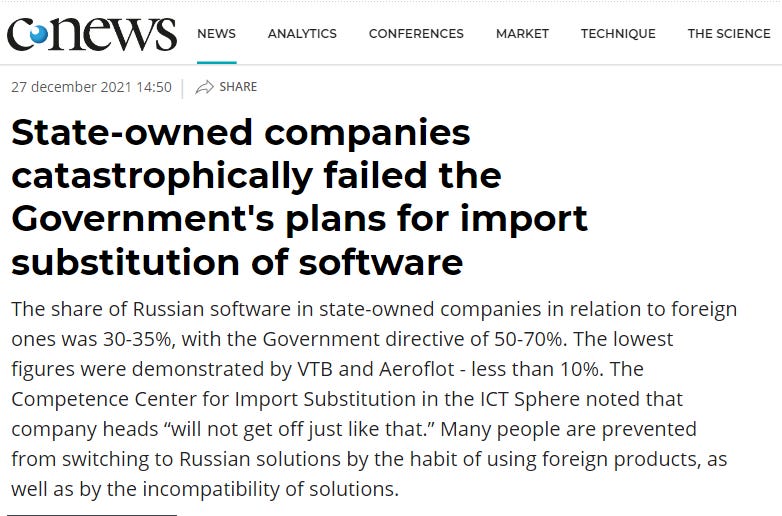
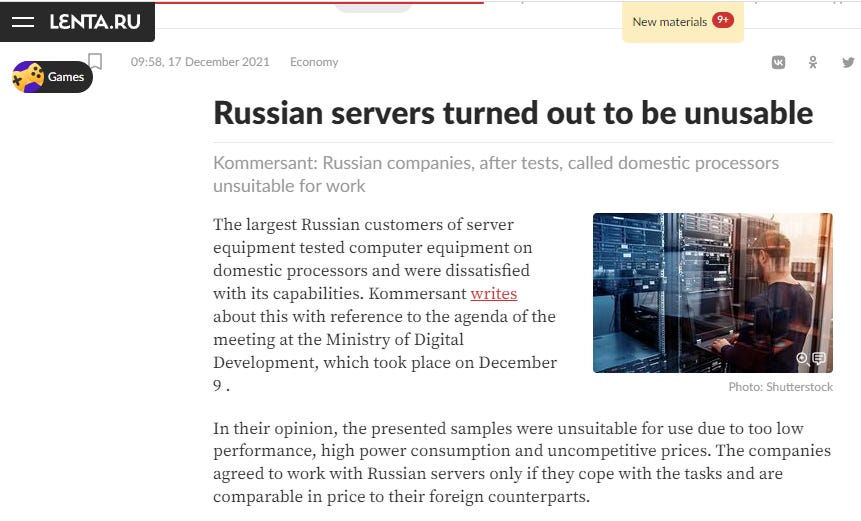
To be fair, progress has been made towards making Russia’s IT sector more independent. But I am compelled to ask: Why were clot-shots and QR codes a priority in 2021—and not “developing homegrown software that would drastically reduce Moscow’s technological dependence on its enemies”? What are the priorities here? Or is it rude to ask?
The good news is that Moscow is withdrawing from the World Health Organization and the World Trade Organization.
BREAKING: RUSSIA IS GEARING UP TO LEAVE THE WHO
Here’s some explosive, game-changing news, cited by Cerise to prove beyond a reasonable doubt that Moscow is karate-chopping its ties with the globalists:
By being kicked out of so-called international organizations [the World Economic Forum], Russia plans to take the lead and recreate its own space of independence and alternative international relations by completely extracting itself from the system under Western control.
Pyotr Tolstoy, the deputy chairman of the Russian parliament, the State Duma, issued an explosive press release on May 18, 2022 which provided behind-the-scenes access to the Russian deep state and its long-term sovereignty projects.
Cerise then copy-pastes a statement from Tolstoy about how Duma committees were instructed by Chairman of the State Duma Vyacheslav Volodin to “study the advisability of Russia’s presence in the WTO, WHO, and IMF, since these organizations have already broken all their own rules with regard to our country.”
It’s been 488 days since Tolstoy made these comments. What has happened since May 18, 2022? Nothing. Worse than nothing, actually, because Russia’s Health Ministry immediately rebuked the State Duma, stating that “cooperation with the WHO is effective and mutually beneficial”. Then Sergei Lavrov got on the phone with Dr. Tedros and reaffirmed “Russia’s support for the central role of the WHO”.
In March of this year, the Russian Foreign Ministry explained that Moscow “was obliged to comply with the rules of the WTO, and withdrawal from it would deprive us of a number of advantages related to protecting the common market of the union from imports that are sensitive to our economy.” But… Cerise… said…
I wrote an entire article about why this more-than-one-year-old comment from Tolstoy is actually a painful reminder of the Russian government’s infatuation with globalist clubs. You should read it.
By the way, why doesn’t Cerise mention that almost every joint declaration Moscow signs (whether it be a G20 Declaration, a BRICS Declaration, or just some word salad authored with the help of Beijing) includes a passage praising the vital roles of the World Health Organization, the World Trade Organization, and the International Monetary Fund? This seems like relevant information.
Or maybe Cerise’s readers would be interested to know that Moscow’s representative at the recent World Health Assembly noted “[the WHO’s] role in strengthening the health of the world’s population” and expressed hope that the WHO and “its member states are able to develop and achieve their goals, primarily the SDGs [Sustainable Development Goals]”? Again, maybe more relevant than a 488-day-old statement?
Moscow's WHO masochism
Let’s just say that the Tolstoy citation “lacks context”, and Cerise is not giving his readers “the full story” by citing a 488-day-old comment without any attempt to explain what has happened since then. Let’s just say that.
If you read between the lines, Cerise clearly understands he is misleading his readers because he follows the Tolstoy quotation with this curiously phrased sentence: “The Russian deep state is starting slowly, too slowly—due to administrative time and institutional inertia—to rebel against all threats to its sovereignty.”
Uh, no. The Russian government has repeatedly said it has no intention of withdrawing from the WHO, the WTO, or even the IMF. It would be nice if Cerise could update his article to reflect this undeniable reality.
And now it’s time for something very special.
You also use globalist weapons, you hypocrite!
This comes at the start of Cerise’s essay, but I saved the best for last:
Is it true that no state can resist globalism and that all countries follow its agenda? This is also what other commentators on the situation think, such as Pierre Hillard, Nicolas Bonnal, or Edward Slavsquat (Riley Waggaman), who spend a lot of time explaining to us that Russia is also part of the Great Reset and the “New World Order”.
In fact, we are all in the same world and forced to fight on the same battlefield and with the same weapons as the enemy, including the authors cited, who also make intensive use of computers and have already put their finger on the gears that lead to the Great Reset and the “New World Order”.
Yeah, but hear me out: There might be a difference between coercing people into injecting themselves with unproven genetic goo, and using a computer to blog and play in online chess tournaments? I don’t want to oversimplify this very complicated issue, but it just seems like these two activities are not even remotely the same?
However, I admit my role in ushering in the Great Reset by listening to Bach fugues on YouTube, and I ask for your forgiveness.
A final observation, and then I am done typing for the day.
“We are all in the same boat, which will perhaps end up like the Titanic”
About halfway through his 5,000-word essay, Cerise makes a truly profound statement:
From the point of view of technoscientific competition, we are all in the same boat, which will perhaps end up like the Titanic, which does not mean that we are all in agreement and unified by a common agenda.
Okay. Now I feel better.
Subscribe for more confessions of a Computer User




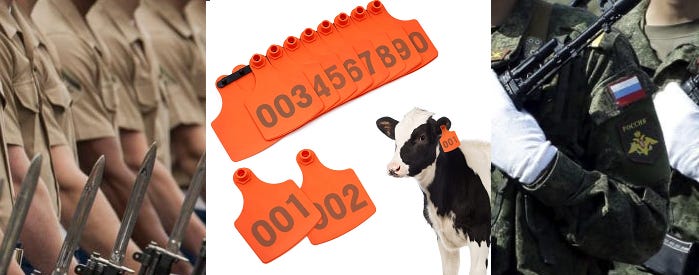
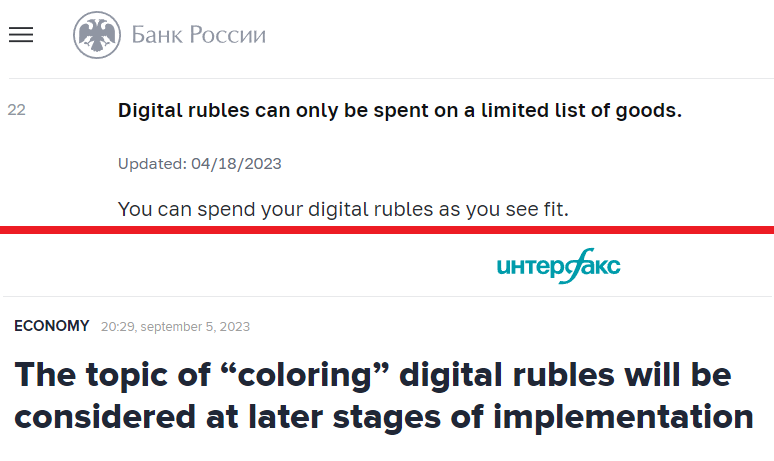
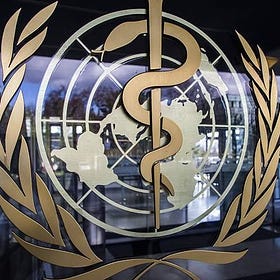
Bad news, folks. I thought Putin was going to liberate us from the scary biolabs... Oh no....
Hello dear like-minded people, a few reflections on the article discussed, each with a translated quote excerpt:
1. „Two mortal enemies can share the same battlefield and the same weapons, thus resemble each other almost perfectly, and still remain mortal enemies."
Who knows for sure if they are even mortal enemies in this "game"???
2. „Since warfare is now largely computerised, it is not surprising that Russia and the other BRICS countries are also investing in this area - a sine qua non if they want to maintain the balance of power with the West in this area."
Everyone can do that as they wish, after all, one does not have to close oneself off to modern developments, as long as these developments serve the people? And who knows for sure whether this is really about a (ultimately also financial) showdown?
3. „You cannot fight NATO with bows and arrows. Why is that? Because NATO does not attack with bow and arrow. This military alliance and its military-industrial complex impose their choice of weapons for their hybrid warfare on a global scale, all the more easily because it is technology that makes universal history and all are forced to adapt to its rhythm, that of scientific discovery, if only to remain competitive and support the balance of power with equal weapons on the international stage, if only to challenge NATO's agenda."
What a killer argument! One starts war, the other has to join in? By the same means? I'm no expert on these things, but this much my common sense tells me: if the supposed enemy is killing its people with fake pandemics, lockdowns and deadly vaccines, that's one way of waging war, but not against the enemy cited in the article, but with weapons against the population. I really know of NO argument why Putin should then feel compelled to do the same (and it has not yet been proven that Sputnik does not cause similar damage, on the contrary… and even if not: To play the same game means to lie to the people!)
Apart from that, an important aspect is missing: this is about an inhuman ideology that is to be enforced worldwide at the expense of the population. War and technology are only the means to this end.
And so far I have never heard any clear statements from the leading politicians in East or West that call this ideology by its name, expose it, question it, let alone reject it! There would have been enough time for this for years, but ALL have kept silent in front of the people and let them run into their misfortune, after having actively orchestrated it in the meantime.
Putin included.
And one last thought that came to me while reading this article: unfortunately, it reminds me very much of what has been and is being addressed in the MSM as a message to the population, namely that this is about a war between West against East, because that is precisely what serves people's conventional ideas all too easily. And unfortunately it also fits all too well with PsyOps like Q, for example, in which people are led to believe Hopium is a good guy who has to go along with all this because that's the only way to save humanity.
Conclusion: poor Putin can't help it, he is forced to go along. But… wait: he is perhaps playing 5D-chess, too complicated for the „useless eater“ 🥳
No, seriously, the author has apparently consumed too much of Goethe's sorcerer's apprentice, the (technological) ghosts we called, we now can't get rid of?!? So responsibility no longer exists? Humanism adé? We are all victims? The whole thing is so ridiculous!🤦♀️